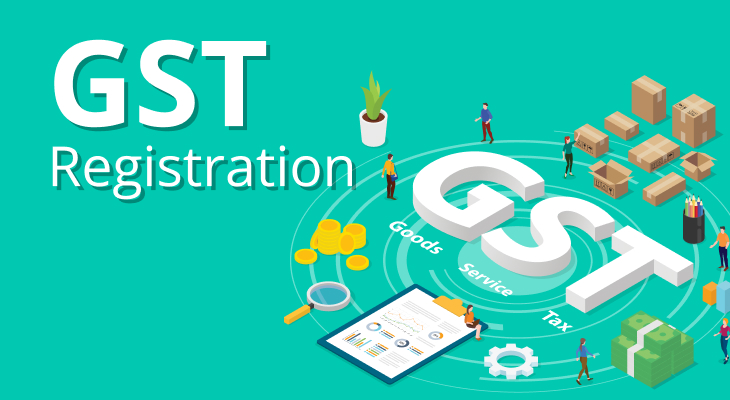Avoid Common Mistakes in Singapore GST Registration for Your Business
Avoid Common Mistakes in Singapore GST Registration for Your Business
Blog Article
The Ultimate Overview to Streamlining the GST Enrollment Refine and Needs for Small Service Owners

Comprehending GST Fundamentals
To realize the basics of the Item and Services Tax Obligation (GST) system, small company proprietors have to first understand its underlying concepts and effects. Under the GST program, businesses are called for to collect and sign up tax obligation on behalf of the federal government, guaranteeing transparency and conformity.
One of the key principles of GST is input tax credit history, which enables businesses to claim credit history for tax obligations paid on their acquisitions. This system stops the cascading effect of tax obligations and advertises efficiency in the tax obligation system. Additionally, GST is a destination-based tax, meaning that the tax obligation is imposed at the factor of intake as opposed to the factor of origin. This makes sure fair circulation of tax obligation profits amongst states based upon where the services or items are eaten. Comprehending these basic concepts is critical for local business proprietors to navigate the complexities of the GST system and make sure compliance with the regulation.
Qualification Criteria for Enrollment
Having established a foundational understanding of GST principles, local business proprietors should now satisfy specific eligibility requirements to proceed with the registration process. In India, entities participated in the supply of goods or solutions with an annual aggregate turnover exceeding Rs. 40 lakhs (Rs. 10 lakhs for unique group states) are needed to sign up for GST. Additionally, certain services such as those entailed in inter-state supply of products, informal taxable individuals, and those called for to pay tax obligation under the reverse cost system have to register for GST regardless of their turnover. Businesses that were signed up under the previous tax obligation program (VAT, service tax, and so on) are likewise mandated to sign up under GST. Agricultural organizations that only provide create out of main production are excluded from GST enrollment. It is vital for business proprietors to very carefully analyze their qualification based on these standards to ensure compliance with the regulation and stay clear of any type of penalties for non-compliance.
Papers Needed for GST Enrollment

Simplified Enrollment Refine Actions
Complying with the collection and confirmation of the requisite papers, the registration procedure for GST can be browsed via a collection of streamlined actions created to help with reliable conformity for little business proprietors. Upon effective verification, an Application Referral Number (ARN) is released, indicating the completion of the GST enrollment procedure. By complying with these streamlined actions, small organization proprietors can properly register for GST and make sure compliance with tax obligation guidelines.
Tips for Ensuring Compliance
To keep regulatory adherence and operational honesty, attentive oversight and proactive steps are pivotal in guaranteeing conformity with GST demands for small service proprietors. Tiny service proprietors must remain updated with GST guidelines, submitting due dates, and any changes in tax obligation prices to stay clear of penalties and preserve a good standing with tax authorities. One crucial suggestion for conformity is to keep precise and in-depth documents of all purchases, including costs, billings, and receipts associated with GST. On a regular basis reconciling financial records with GST returns can aid in identifying and remedying any type of inconsistencies promptly. In addition, performing routine internal audits or seeking professional help can ensure that business is adhering to all GST guidelines properly. It is also vital for local business proprietors to invest in GST-compliant audit software program that can enhance the tax declaring process and lessen errors. Finally, going to GST awareness workshops or training programs can improve understanding and conformity with GST laws, inevitably profiting the business in the future.
Verdict
In conclusion, tiny organization proprietors should recognize the essentials of GST, satisfy the eligibility criteria, collect necessary records, and adhere to the simplified registration procedure steps to ensure compliance. By simplifying the GST enrollment procedure and demands, small company owners can stay clear of penalties and run their businesses smoothly within the lawful framework - Singapore GST Registration. It is critical for small business owners to stay compliant and why not try this out informed with GST policies to maintain a successful service operation
Little business owners looking for GST enrollment have to guarantee they collect and send the needed papers to complete the enrollment process efficiently. The records needed for GST enrollment typically consist of proof of organization registration or consolidation, PAN (Long-term Account Number) card of the company address, identity and entity evidence of the promoters/partners/directors, photos, address evidence of the area of organization, financial institution account declarations or canceled cheques, and permission forms. Participating in GST awareness workshops or his comment is here training programs can enhance understanding and compliance with GST laws, ultimately benefiting the service in the long run.
By streamlining the GST enrollment process and requirements, little company owners can avoid charges and operate their companies efficiently within the legal structure. It is vital for small business proprietors to remain informed and compliant with GST guidelines to maintain an effective company operation.
Report this page